Max is the youngest brother of UK prime minister Boris Johnson. But he has his own story to tell; a journey from an MBA, to Goldman Sachs, and a role at the center of UK-China business
Maximilian (Max) Johnson always knew he had to jump on the China wave.
He speaks to me from Hong Kong, where he works at the crux of UK-China business. Max has that same Johnson twang; charming, jovial, and purposeful. Politics, he says, is something he has in mind for the future.
At 34, he’s the youngest of the six children of his father, Stanley (pictured below), and 22 years younger than his half-brother and UK prime minister Boris Johnson.
Like Boris, Max started his adult life at Oxford University, studying Russian and Polish. He became the first UK citizen to join the MBA program at Tsinghua University School of Economics and Management (SEM), one of China’s most respected schools. He was also the first Brit to run the Pyongyang Marathon in the DPRK.
Max backs Boris, despite his own ambiguous views on Brexit. But what of Max Johnson himself? At the core of his story, he says, is his MBA
Listen to the full interview with Max Johnson, Boris Johnson's brother on our podcast:
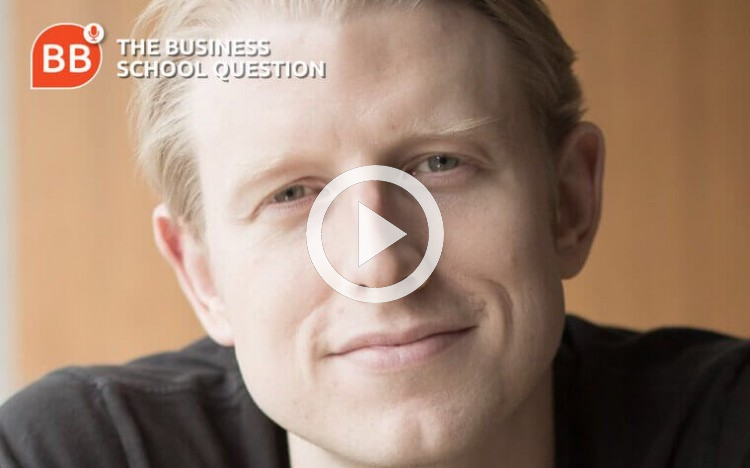
Who is Max Johnson?
Today, Max runs his own investment and advisory firm, MJ Capital, which invests in companies looking to sell products or services in China.
These include: Platinum Fitness, a high-end gym chain; Intrigue Pictures, a movie investment company he started after a brief appearance as an extra in the popular Transformers: Age of Extinction; and Wonderbly, a children’s books company which has secured a multimillion dollar deal to print and distribute books in China.
But as a young Oxford graduate, Max says his experience of the Asia was limited to Chinatown in London.
He knew he wanted to pursue a graduate degree, learn a language, and learn about business at the same time. While travelling in Russia during his final year at university, he took a train across to Beijing and visited universities there, drawn by China’s fast rate of growth. “China was the topic of conversation,” he says
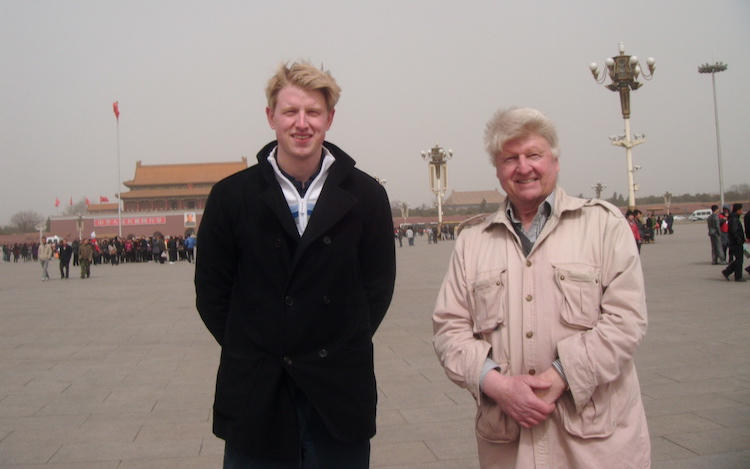
Age 22, he had limited work experience for an MBA candidate. He deemed most United States business schools out of reach. But he was accepted into the Tsinghua-MIT Global MBA Program, a partnership between Tsinghua SEM and MIT Sloan in the US.
“I think the fact I was the first non-Chinese from the UK and an Oxford grad helped,” he says. “They asked me challenging questions about my lack of work experience, but in the end it didn’t count against me.
“Doing an MBA would come with an opportunity cost later in life. I thought if I could do it at 22, I would turbocharge my career.
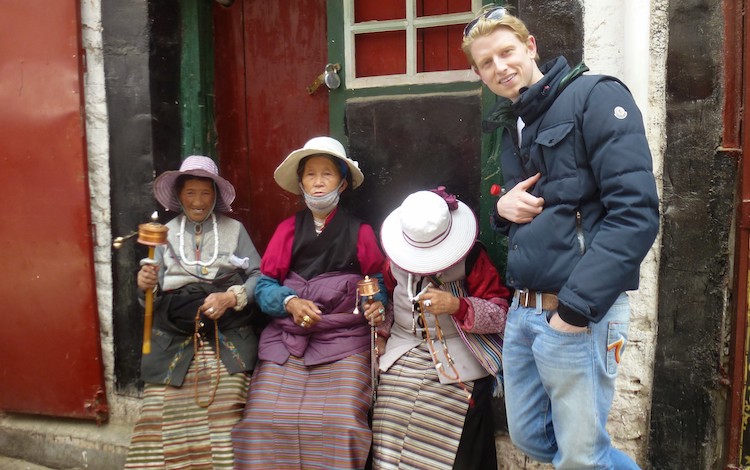
Why Tsinghua?
When Max arrived at Beijing airport to start his MBA experience, he had a feeling of helplessness. He was met by one of his Chinese classmates, but left alone he says there were few people he could communicate with.
"Here I was with a one-way ticket to China! Unlike now, back in 2007 very few Chinese people could communicate in English. Just getting things done—like opening a bank account, setting up a mobile phone, or paying an electricity bill—was difficult."
Max knuckled down and started learning Chinese. At Tsinghua, he took up the role of lead presenter on group projects, working alongside his Chinese classmates on financial modeling, analytics, and preparatory work.
Max chose Tsinghua for the chance to mingle with China’s future business leaders. Tsinghua SEM’s founding dean was Zhu Rongji.
Tsinghua has a reputation in China comparable to that of Oxford or Cambridge in the UK.
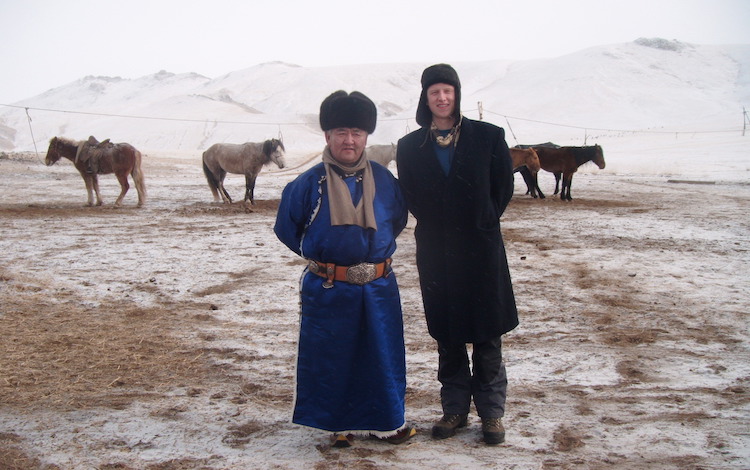
While Max wanted to work in finance after his MBA, few banks were hiring in 2009. His post-MBA job, working for British trading company Wogen Resources in China, came of out contacts he made during his time at business school.
By 2012, financial markets had picked up and Max joined Goldman Sachs in Hong Kong. After six months as an analyst, he was promoted to associate, working on mergers and acquisitions (M&A).
“I wanted to come to Hong Kong and I wouldn’t have been able to get that job without the Tsinghua experience,” he says
Max on securing his post-MBA job:
In a bar I met a few Wogen employees on a business trip to China. When it became apparent I knew Mongolia well and could speak Russian, one of them suggested I go to Mongolia and write a report on mining.
A year later, as I was approaching graduation, I did the same in Uzbekistan and Tajikistan. Both reports were judged to prove my worth and I was offered the job in China.
Excerpt from the Financial Time
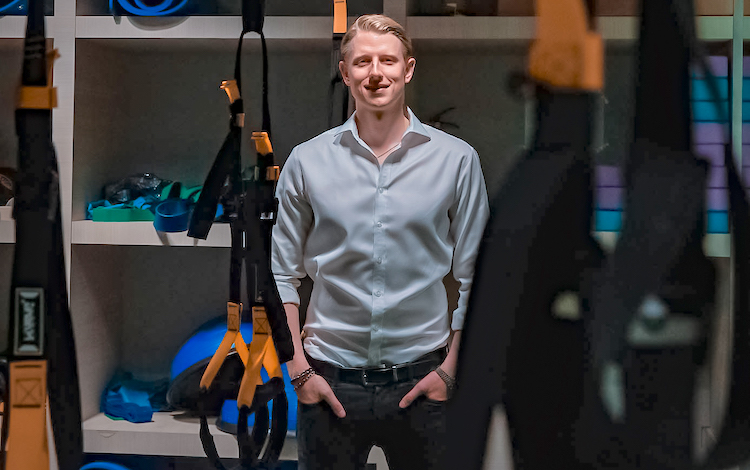
UK-China business
Max’s time at Goldman Sachs came to an end in late 2016. The Times called him the victim of a "cost-cutting purge."
“I prefer to think of myself as a beneficiary!” Max laughs. His exit from Goldman, he says, was a “liberation.”
He decided to use contacts he’d made up during the past years—Chinese contacts interested in doing business with the UK and UK contacts interested in doing business in China—and started up MJ Capital.
Although not directly affecting his work, Max admits that the uncertainty around Brexit is damaging to UK-China business.
Britain needs to act, but Brexit, he suggests, will have little positive impact. “If Brexit was not happening at all, I think Chinese interest in the UK would be just as strong as it’s going to be after Brexit,” he says
Max’s 3 tips to doing business in China
1. Don’t let your counterparty lose face
Even if you’ve negotiated down to a price where your counterparty is taking something away from it, if you’ve done it in a way that’s too aggressive, arrogant or condescending you may have inadvertently caused them to lose face in which case they won’t feel happy about the deal. You can be strong-minded, but you have to negotiate in a charming way.
2. Back-channel communication
Because everybody is so worried about making the other party lose face, a lot of the negotiation points will be pre-agreed in the back-channels by the working teams. So, when you go to a face-to-face meeting, there’s not going to be anything that’s going to take anyone by surprise. You need to establish a route-in that’s not the public route to actually negotiate.
3. Find the decision-maker
Quite often you’ll go into a room with Chinese businesspeople across from you and it’s not obvious at all who the decision maker is. First, establish who that really is so you don’t waste too much time talking to the wrong person

Today, Max looks back on his MBA experience with fondness. His MBA lay the groundwork for how to conduct business in China and he still taps into his business school network and name.
“In meetings, when I say that I was at Tsinghua, there’s a recognition there,” he says.
Max just about made the four-hour cut-off for the DPRK marathon. He crossed the line in front of a crowd of 50,000 well-rehearsed spectators in Kim Il Sung Stadium (pictured), where the race starts and ends. Those who didn’t finish were closed out.
Max remembers how the cheering crowds spurred him on. If he does enter the political realm, there could be more of that to come.